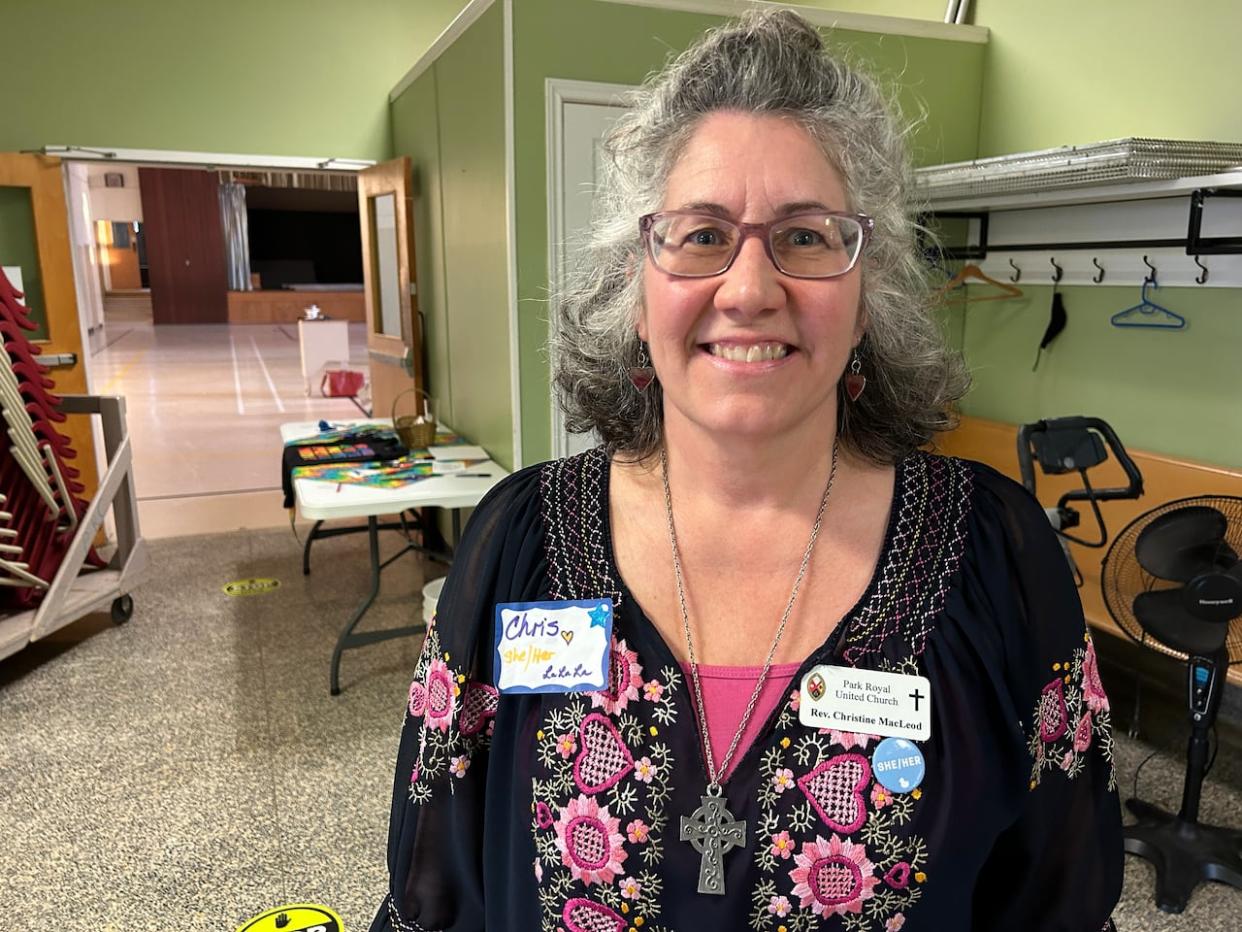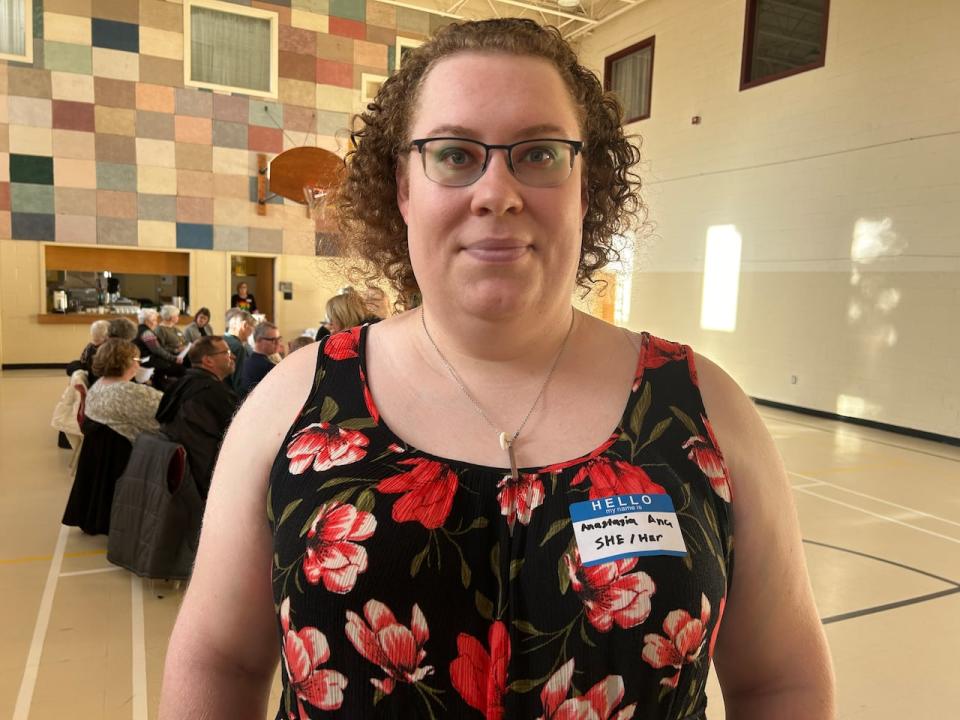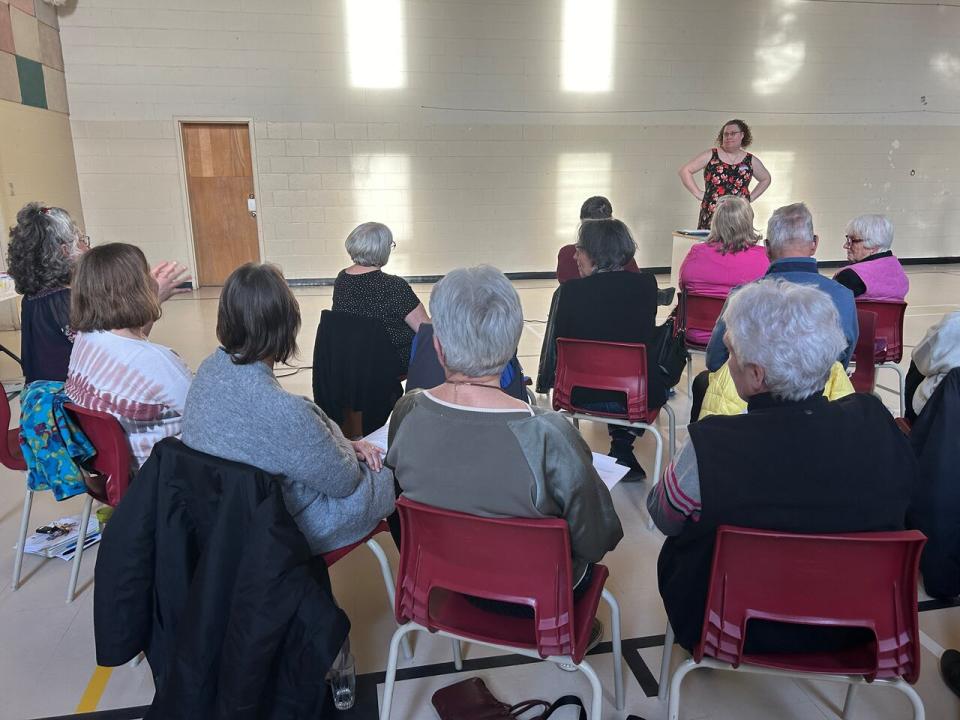United Church aims to make faith community more 2SLGBTQ+ inclusive

While Pi Day is associated with the number 3.14, some use March 14 to promote a different kind of pie.
The day was also National Affirming Day for members of the 2SLGBTQ+ community, and United churches on P.E.I. wanted to help encourage members of the community to learn more about gender identity.
"We kind of had a crash course in transgender 101 trying to create a safe, positive environment for people to ask their questions, to kind of grow and learn forward," said Rev. Christine MacLeod, minister at Park Royal United Church in Charlottetown.
In the 2SLGBTQ+ community, PIE stands for public intentional and explicit inclusion of 2SLGBTQ+ people.
Anastasia Preston, trans community outreach co-ordinator with PEERS Alliance, spoke to about 30 members of the church on Wednesday night.
"I think it is very important to have these conversations with community," Preston said.
Topics of discussion included preferred pronouns, gender identity, sexual orientation and inclusive language.

'There are a lot of people in our communities that are religious. There's a lot of people that go to churches like the United Church,' says Anastasia Preston, trans community outreach co-ordinator with PEERS Alliance. (Tony Davis/CBC)
"I wanted people to be able to have an open conversation and have any worries or concerns that they have maybe answered," Preston said.
"I'm hoping that people get a fuller picture of gender identity."
It's no secret some members of the 2SLGBTQ+ community have felt unwelcome in some religious settings. Preston was raised Catholic.
"It can be a hard place sometimes, but churches like the United Church that have pride education courses for their ministers and pride certifications are an important piece of that puzzle to making people in the LGBTQ community also access religion," she said.
"There are a lot of people in our communities that are religious. There's a lot of people that go to churches like the United Church. There are specific religions that just kind of ban LGBTQ people from taking part in them … but that doesn't mean that they may not hold these beliefs. Just like anybody, LGBTQ people are diverse individuals," Preston said.

The event was hosted by Royal Park, Trinity of Charlottetown, Trinity of Summerside and Spring Park United churches. (Tony Davis/CBC)
MacLeod believes Christianity has been "hijacked" by some political groups.
"The fundamentals of Christianity is we followed this radical dude that was, like, radical [inclusivity]. Like that was Jesus's whole game. It doesn't make any sense that we allow our faith story to be hijacked and be paired up with hate when we come from a story of love," MacLeod said.
Anyone who is on the fence, who may have left the faith community and are interested in coming back, MacLeod said, there is space for them.
"Whatever they need us to do to make them feel welcome, that's our job," said MacLeod.
The plan is to host similar events going forward.
Various flavours of pie were served at the event.
"If we are sharing food together, we're really setting the table, literally, for equality that we all belong, we all deserve to be fed," said MacLeod.

 Yahoo News
Yahoo News 
